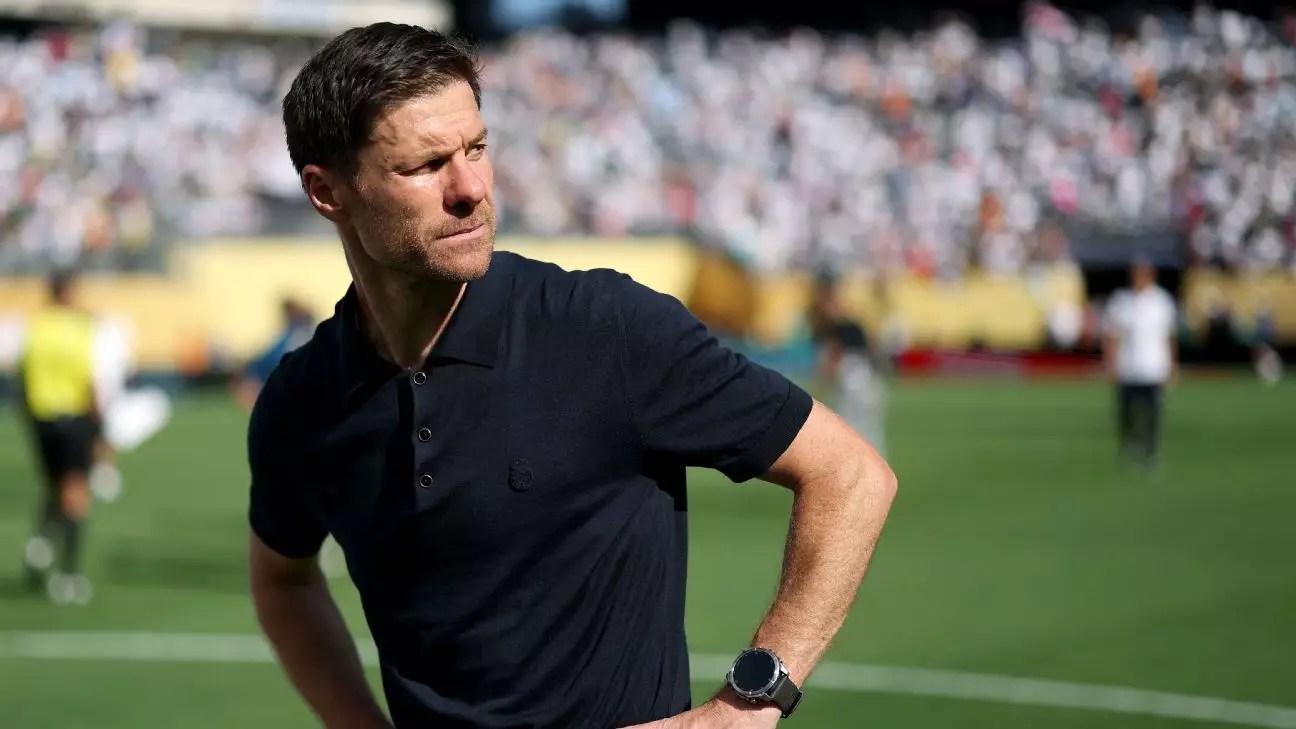Xabi Alonso’s return to Real Madrid as head coach marks more than just a reunion; it signals a potential seismic shift in how the club operates and competes. After several lean seasons, the club remains hungry for silverware, and Alonso’s reputation as a meticulous, fearless leader provides hope that Madrid could soon reclaim its dominance. Unlike previous managers who may have hesitated to make tough decisions, Alonso’s track record at Bayer Leverkusen demonstrated his readiness to shake up the line-up, challenge star players, and instill a resilient team mentality. That willingness to make big calls, regardless of reputational risks, could be the catalyst Madrid needs to break out of its recent trophy drought.
Alonso’s leadership philosophy is rooted in demanding excellence and fostering cohesion through discipline. Having worked with some of the world’s best players, he understands that top-tier talent alone doesn’t guarantee success—it’s about integrating those talents into a cohesive unit willing to adapt and evolve. His prior experience at Leverkusen revealed his ability to build such teams, and with Madrid’s resources and star presence, he now has the tools to implement his vision on a grand stage. The challenge lies in getting star players like Vinícius Júnior and Kylian Mbappé to operate harmoniously within his tactical framework—a task Bale believes Alonso is well-equipped for, given his respect for the players and his demonstrated confidence to drop anyone who doesn’t buy into the system.
The Pressure to Deliver: Star Power vs. Trophies
Real Madrid’s expectations are famously sky-high, and that pressure intensifies with each passing season without a trophy. The club’s recent struggles highlight a dilemma: talented individuals like Mbappé, despite their scoring feats, haven’t translated their performances into collective victories. Bale, a former star himself, emphasizes that individual brilliance isn’t enough at Madrid—success is measured against titles, especially in the modern era where competition has become fiercer than ever.
Mbappé’s arrival was heralded as a game-changer, yet the French forward’s ability to score and perform has not yet yielded tangible silverware for Madrid. Bale notes that players can still be effective individually, but it’s the timing, strategic energy management, and team integration that often determine the outcome of big tournaments. For Alonso, this is an open challenge: to find the right balance between demanding discipline and unleashing the creative firepower of his star forwards. His touchpoint with Mbappé’s style and energy suggests he recognizes the importance of refining rather than overhauling, fostering a mindset that aligns with Madrid’s relentless winning culture.
The recent humbling defeat to PSG in the Club World Cup underscores how fragile development can be. Despite Mbappé’s personal brilliance and Madrid’s star-studded roster, collective success eluded them once again. Bale’s insight underscores that, at Madrid, individual brilliance often needs the right tactical context to flourish. Alonso’s task is to craft that environment—one built on discipline, tactical flexibility, and a culture that refuses to accept anything less than victory.
The Shadow of Legends and the Future Beyond
The departure of Luka Modrić, a true Madrid legend, acts as a symbolic point of transition. Bale’s admiration for Modrić’s footballing intelligence encapsulates the kind of leadership and professionalism Alonso now inherits. Replacing such figures is never easy, but it also offers an opportunity to cultivate new leaders on the pitch. Bale’s praise for Modrić, coupled with his hopes for Alonso’s managerial success, reflect the importance of continuity blended with fresh ideas—a delicate balance that the Spanish giants must strike if they are to regain their dominance.
Bale’s personal history with Alonso, playing alongside him during their Champions League triumph, gives him credibility when he speaks about Alonso’s potential as a coach. His observations about Alonso’s passion and meticulous nature suggest that the Spaniard is more than capable of translating his footballing intelligence into effective managerial tactics. Still, success in football demands adaptability, and Alonso’s ability to quickly identify and exploit weaknesses within his squad will be crucial.
Looking ahead, Madrid’s blend of youthful talent and seasoned veterans will define Alonso’s tenure. Bale advocates for a manager unafraid to make unpopular but necessary decisions—dropping underperformers, reshaping tactics, and demanding high standards at every turn. Whether Alonso can harness Madrid’s star power without succumbing to ego or complacency remains the key question. His journey will be closely watched, as the club’s future hinges on whether he can turn talent into trophies.
Rise of a New Era in Madrid’s Rich History
Xabi Alonso’s appointment isn’t merely about tactical overhauls; it represents a deeper cultural shift. The club, famous for its relentless pursuit of excellence, now needs to adapt to an increasingly competitive landscape, where innovation and managerial bravery are paramount. Alonso’s track record suggests he’s prepared to challenge the status quo—willing to bench stars, implement bold tactical changes, and build a cohesive, hungry unit capable of overcoming the best.
Cristiano Ronaldo’s legendary era showed how a singular talent could carry the team, but modern success relies on collective resilience and tactical intelligence. Alonso’s experience as a Player and now as a coach gives him an edge—understanding players’ mindsets and knowing when to push or support. He might be Madrid’s secret weapon in a time when the club’s history demands that it reassert itself on both European and domestic fronts.
As the club navigates this new chapter, one thing remains clear: Madrid expects nothing less than greatness. Whether Alonso can deliver it depends on his ability to inspire confidence, make tough choices, and unlock the full potential of his squad. The road to redemption is fraught with challenges, but at Madrid, it’s a journey worth witnessing—powered by vision, resilience, and an unwavering hunger for glory.


Leave a Reply